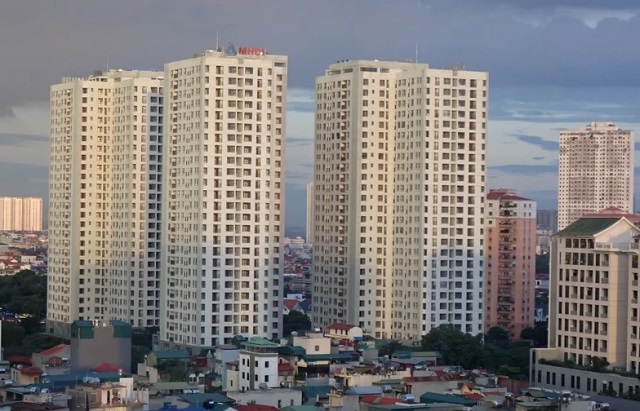
|
Loosening the conditions will facilitate easier access to social housing for citizens. (Photo: Vietnam+)
|
The fact that Decree 100/CP came into effect simultaneously with the new Housing Law demonstrates the attention given by state management agencies to the social housing segment.
Additionally, the State Bank of Vietnam has submitted a proposal to the government to expand the VND 120 trillion credit package for social housing to VND 140 trillion. They have also recommended reducing the interest rate by 1-3% to make it more accessible to citizens.
Many policies have been relaxed.
Experts have stated that the new regulations in Decree 100/2024/ND-CP, which detail a number of articles in the Housing Law on the development and management of social housing, are groundbreaking. Specifically, the decree relaxes the income conditions for beneficiaries of social housing support policies. Individuals with an income of up to VND 15 million can now purchase, rent, or rent-to-own social housing, as opposed to the previous limit of VND 11 million. For married couples, the condition to rent or buy this type of housing is a combined income of up to VND 30 million per month.
This approach is more in line with the reality of income and expenditure of many people in need of social housing. By considering the total household income (including both spouses), it allows for a threshold of VND 30 million per month, making it easier for eligible individuals to access social housing.
According to Deputy Governor of the State Bank of Vietnam Dao Minh Tu, the scale of the credit package has been expanded with the participation of four joint-stock commercial banks, increasing the total capital to VND 140 trillion. This not only enhances financial capacity but also facilitates the faster implementation of social housing projects.
In parallel with the expansion of the package scale, the interest rate has been adjusted downward by 1-3%, making it easier for homebuyers to access capital. This move aims to provide maximum support for citizens, especially those with low incomes, to own houses with preferential interest rates, with the interest rate adjustment period being shortened to three months from the current six months.
The Deputy Governor also added that after the five-year incentive period, the bank will continue to offer preferential interest rates to borrowers, with a rate at least 1-2% lower than commercial lending rates, instead of the current floating rate.
“This is a very clear direction, and after five years, we will not let the interest rate float and push it up, causing concern for borrowers. As for the lending policy for investors, it will remain the same as it is now,” emphasized Mr. Tu.
It is known that on August 2, 2024, the Ministry of Construction issued Document No. 4408/BXD-QLN agreeing with the above proposal of the State Bank.
According to experts, this demonstrates the strong determination of the banking sector to promote preferential credit for social housing in accordance with the government’s directions. While the scale of the package has been increased, the interest rate has also been adjusted to facilitate homebuyers. However, representatives of banks still face many challenges in implementing the program.
In addition, administrative procedures related to the purchase of social housing have been simplified. The regulations on confirming residence and income have been streamlined, reducing the time and hassle for citizens when completing the necessary procedures. This not only improves disbursement efficiency but also makes it easier for homebuyers to access the credit package.
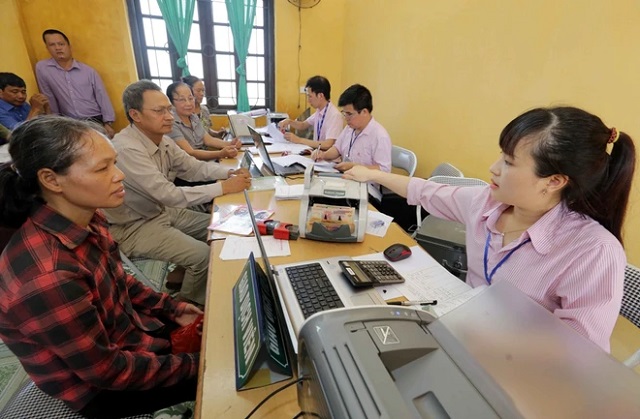
Attorney Pham Thanh Tai, Director of Pham Danh Law Company, assessed that under the old regulations, the conditions for purchasing social housing (individual income below VND 11 million per month) were difficult to implement. This is because most people in need belong to the low-income group, who may not have the demand or ability to buy a house, or may not be able to repay the loan, not to mention the risk of lending to the wrong beneficiaries. This was also a challenge for banks in identifying borrowers.
“With the new regulation, when determining the total combined income, as long as the wife and husband can prove their ability to repay the loan for the whole family, the bank will agree to disburse the loan for a suitable project. This regulation may unlock a critical bottleneck for the VND 120 trillion package and the social housing segment,” Attorney Tai emphasized.
Is an interest rate of 6.6% appropriate?
In a document sent by the Vietnam Bank for Social Policies to the provincial branches, it is stated that according to Decree No. 100/2024/ND-CP, which took effect on August 1, replacing Decree No. 100/2015/ND-CP, loans that have signed credit contracts with the Vietnam Bank for Social Policies to purchase, rent-to-own social housing, or build or renovate houses for living purposes before August 1 will be subject to the interest rate applicable to loans for poor households as decided by the Prime Minister for each period. Currently, this interest rate is 6.6% per annum (previously it was 4.8%).
Immediately, many social housing buyers became worried when they learned that their loan interest rate had increased from August 1.
Mr. Nguyen Van Nam from Long Bien, Hanoi, shared that the interest rate increase was unreasonable and went against the market reality, as market interest rates are currently very low. While the government and the Prime Minister have directed commercial banks to reduce lending rates to share difficulties with businesses and people, the interest rate for social housing loans from the Vietnam Bank for Social Policies has increased, which is inappropriate.
“I always thought that the social housing loan interest rate would be fixed. So, when I saw the bank’s notification that the interest rate would increase from 4.8% to 6.6% per annum, I was quite surprised and worried. With a total income of only VND 20 million per month for both my wife and me, and with the increasing expenses for our two children’s education and daily needs, this interest rate increase has put our family in a difficult situation,” said Mr. Nam.
Mr. Le Hoang Chau, Chairman of the Ho Chi Minh City Real Estate Association, said that applying an interest rate of 6.6% per annum from August 1 is unsuitable for the nature of social housing loans and is even higher than the interest rate of the previous package of VND 30,000 billion, which was only 5%.
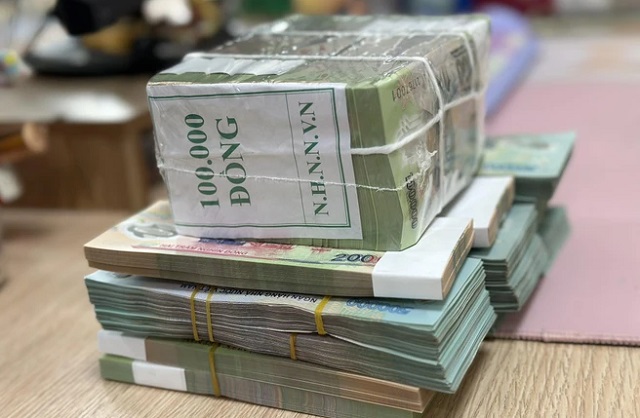
|
Some experts suggest that the 6.6% interest rate should only apply to new loans that have not been disbursed yet.
|
According to Mr. Chau, the interest rate for renting, buying, or rent-to-own social housing in some countries is commonly just over 3% per annum. Previously, the Prime Minister also mentioned the direction of reducing the interest rate to 4.8-5% per annum. However, the bank has not only failed to reduce the rate but also increased it. This will cause concern among social housing buyers who have borrowed from the Vietnam Bank for Social Policies.
“We propose to consider maintaining the interest rate of 4.8% per annum for social housing loans from the Vietnam Bank for Social Policies to ensure stability, especially when homebuyers are still facing difficulties,” Mr. Chau stated.
Some experts suggest that the 6.6% interest rate should only apply to new loans that have not been disbursed yet.
According to experts, the goal of building one million social housing units by 2030 depends on many supportive policies from the government, including credit policies. If the credit interest rate is high, people will not be able to borrow to buy houses, and even with procedural reforms, the target will not be achieved.
On the other hand, the VND 120 trillion credit package for social housing is being proposed by the State Bank of Vietnam and the Ministry of Construction to be further reduced by 1-3% to support citizens. Currently, the lending rate for social housing in this package is 7.5% per annum, and if reduced by 1-3% as proposed, it will be around 5-6% per annum.
Thuy Ha
Mr. Ngo Dang Khoa (HSBC): Exchange rate under pressure in Q1, expected to stabilize around 24,400 dong/USD by end of 2024
Prior to the rising trend of the USD, Mr. Ngo Dang Khoa – Director of Foreign Exchange, Capital Markets and Securities Services, HSBC Vietnam, has shared some insights and forecasts regarding the upward momentum of the USD and exchange rates.

![Record-Breaking Trade: Exports and Imports Surpass $900 Billion for the First Time [Infographic]](https://xe.today/wp-content/uploads/2025/12/1infograph-218x150.png)
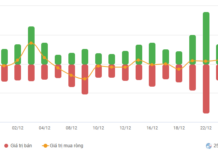
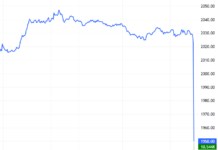
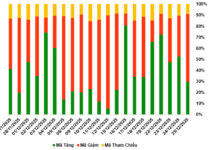

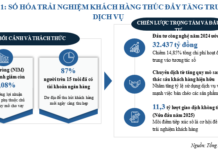



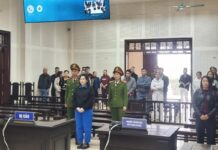
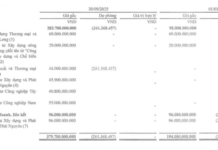



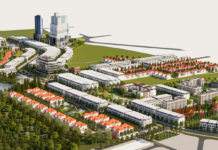
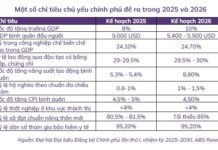
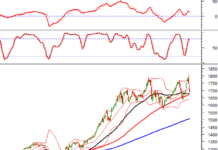
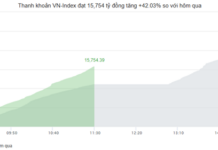
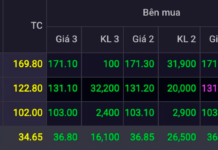











![Record-Breaking Trade: Exports and Imports Surpass $900 Billion for the First Time [Infographic]](https://xe.today/wp-content/uploads/2025/12/1infograph-150x150.png)
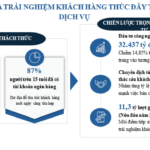

![Record-Breaking Trade: Exports and Imports Surpass $900 Billion for the First Time [Infographic]](https://xe.today/wp-content/uploads/2025/12/1infograph-100x70.png)







